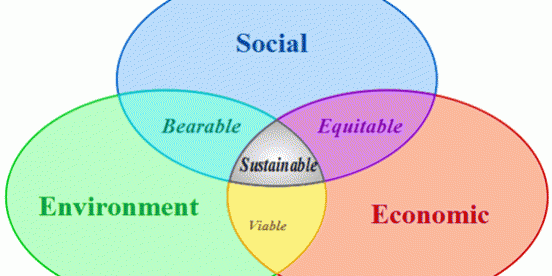When profits ruled corporate policy
As baby boomers, we grew up in an era that celebrated our pioneer heritage and revered the naive view of America as a boundless land of plenty. Major industries like manufacturing, mining, logging, and agriculture reaped big profits through generations of minimal regulation under limited state, regional, and federal oversight.
Corporations routinely carved out raw materials through destructive methods that lay waste to pristine forests and waterways. Land, wildlife, and local communities suffered as a direct result of policies that sought profits over sustainable practices. Mountaintop removal, strip mining, and clear cutting of old growth forests exploited resources with relative impunity.
Historically, Big Business simply had no incentive to carry out social responsibility while our culture and government embraced the myth of America as a promised land whose infinite harvest defied ecological consequence.
Hippies changed the world.
Only a generation ago, influential activist leaders risked backlash from corporations which sought to protect profits and bad policy through legal and political intimidation. Big companies would fight back with their own campaigns to control public discourse. Effective organizers risked having their reforms dismissed as empty ideals designed to stifle successful commerce and the livelihoods of honest workers. The U.S. Green Chamber of Commerce officially extends its thanks to all those hippie, Liberal, tree-hugging Commies whose sacrifice realized positive change for a healthier Earth.
The 1960’s ushered in a period of civil and economic upheaval that informed the way we now view land and resources. Activists organized major protest movements that flexed political muscle, calling media attention to big polluters. Local communities learned to pressure companies to instigate efficient, ethical techniques to acquire resources and eliminate waste with limited impact. Public indignation ignited a grassroots consciousness that led to boycotts and P.R. disasters. Businesses that refused to redress wholesale damage or reform their harmful policies, lingered in our national spotlight, to feed negative press, lose market share, and garner regulatory scrutiny.
Grassroots movements transform conservation from idealism to institution.
The 1970’s, fueled by the activist momentum of the previous decade, saw the birth of agencies and events devoted to the new environmental movement. Many folks cite the first Earth Day celebration on April 22nd, 1970, as the official beginning of environmentalism in America. 20 million participants filled local parks to share news about conservation, alternative energy sources, and to protest ecological abuses such as the agriclture’s rampant use of DDT. These events added words like recycle, bio-fuel, biosphere, and ecology to our active vocabulary.
In December of 1970, the U.S. Environmental Protection Agency came into existence as a federal watchdog with the task of protecting human health and natural resources. The agency brought state and federal regulatory agencies under a single administrative umbrella, enforcing national regulatory standards through strict penalties, with a mandate to perform environmental assessments, conduct research and promote education.
Business models adopt Corporate Social Responsibility to boost their bottom lines.
 Many companies develop sustainable practices as a core value proclaimed in their own mission statements. Corporate Social Responsibility (CSR) has taken permanent residence in our biz speak lexicon, referring to business models which evolve ethical routines to guide production, growth, and profit.
Many companies develop sustainable practices as a core value proclaimed in their own mission statements. Corporate Social Responsibility (CSR) has taken permanent residence in our biz speak lexicon, referring to business models which evolve ethical routines to guide production, growth, and profit.
CSR considers environmental, social, and economic issues, balancing policies that combine green initiatives with operational procedures geared to cut costs, raise efficiency, and shrink overhead.
Has Big Business converted to a warm and fuzzy cult of corporate compassion? No. CSR demonstrates strategic commerce that sharpens competitive edge. More than ever before, companies must conform to regulatory mandates, while dealing with skyrocketing production costs in a depressed economy.
Ethical practices offer attractive branding, and please our eco-conscious public, who instantly reward green accomplishments, and condemn corporate recklessness at blinding speeds through social media.
Doing well by doing good: Good behavior out-performs traditional models for profit.
In February of 2012, Ethical Corporation Magazine published findings from the following study published by Harvard Business School: The Impact of a Corporate Culture of Sustainability on Corporate Behaviour and Performance. The study tracked “…financial performance and growth prospects, of 180 US companies over the period from the beginning of 1993 to the end of 2010.”
90 companies received classification as “High Sustainability” firms for manifesting long-term commitment to corporate policies dedicated to improving social and environmental performance. Meanwhile, the other 90 companies were labeled as “Low Sustainability” firms for their adherence to traditional methods of maximizing profit with little or no deference to social and environmental performance.
Companies which practiced high sustainability “…significantly outperformed firms in the Low Sustainability group in terms of both stock market performance and accounting measures.” Additionally, high sustainability companies recorded better statistics for return-on-assets, return-on-equity, and operational performance.
To make a long study short, doing good is good for business. Companies that practice CSR as their model for achievement in the business community will more likely become profitable. Do better performance and financial rewards come from policies inspired by good corporate citizenship, or do they derive specifically from those kinds of companies which remain more likely to become good citizens in the first place? Does it really matter?
Related articles
- The 100 Best Corporate Citizens (fastcoexist.com)
- Peter Smirniotopoulos: If “Corporations Are People, Too [My Friend],” Shouldn’t They Behave Ethically? (huffingtonpost.com)
- Responsible investments going mainstream (eco-business.com)
- Is Corporate Social Responsibility Good For You? (theleadershiplamplight.com)








